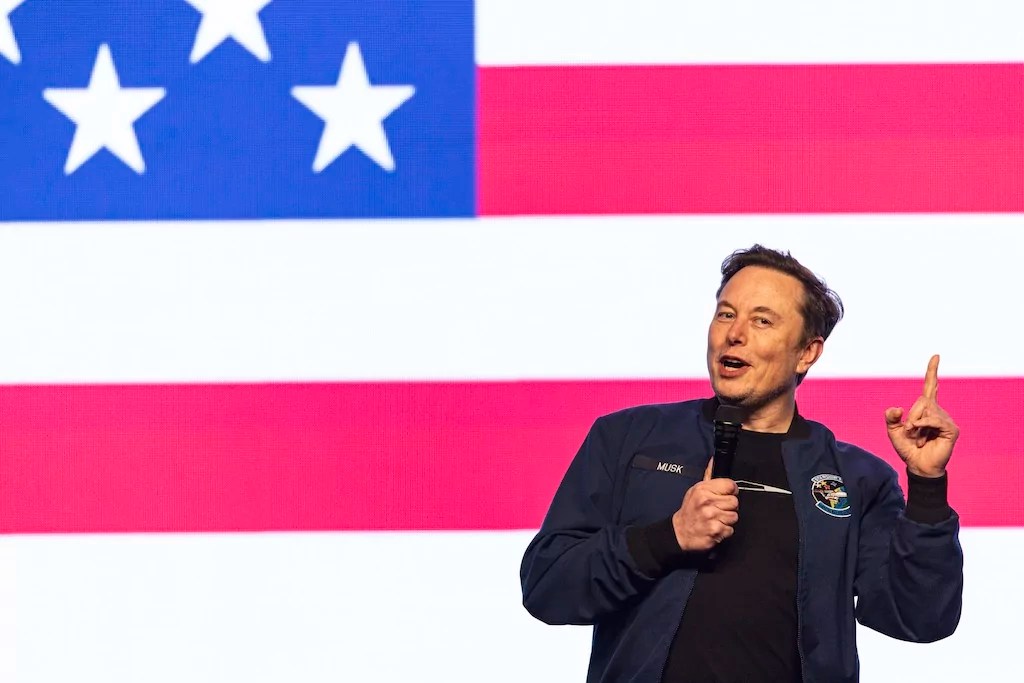Elon Musk: Auto Loans Could Be Source of “Biggest Financial Crisis Ever”
The automotive market may be under stress as several experts call for a massive wave of repossessions in early 2023, with prominent figures like Tesla founder Elon Musk and Ark Invest’s Cathie Wood sounding the alarm about the potential impact on financial markets.
“Potentially the biggest financial crisis ever,” Musk posted on Twitter Friday in response to a tweet by Wood and a series of tweets from the CEO of a car dealer group about the potential auto loan crisis.
Reports by the anonymous Twitter account CarDealershipGuy revealed an “extremely alarming” trend among auto lenders. The CEO behind the account claimed that many lenders are ignoring red flags associated with loan applicants who are already “underwater” on a prior auto loan.
“This morning I discovered something *extremely* alarming happening in the car market, specifically in auto lending,” CarDealshipGuy, who authors a newsletter for auto market insights, wrote on Twitter, catching many people’s attention.
“I’m now convinced that there is a massive wave of car repossessions coming in 2023.”
He went on to explain that many people had no choice but to buy a costly car during the pandemic. He said car values have been falling recently, with some dropping by nearly 30 percent year on year.
“And these same people that took out these big loans are now ‘underwater.’ Basically, they owe banks more on these cars than they are worth,” he stated, adding that the banks are well-aware of the problem.
This morning I discovered something *extremely* alarming happening in the car market, specifically in auto lending.
I’m now convinced that there is a massive wave of car repossessions coming in 2023.
Here’s what I discovered (and what no one knows):
— CarDealershipGuy (@GuyDealership) December 16, 2022
CarDealershipGuy, who wished to remain anonymous, told The Epoch Times that many of these underwater borrowers are attempting to purchase additional vehicles, despite having unpaid debts on their prior auto loans. He is hearing that 35 to 40 percent of new subprime applicants already have outstanding debt, he said.
Normally, banks would consider this a warning sign and refuse the loan, but the dealer said that 65 percent of his associated lenders are issuing the loans anyways.
“I’ve been in the business for a decade and this is completely unprecedented.”
When asked about whether large institutional banks are involved in this lending, he said, “Some of the big household names that you and I know are participating in this.”
He described the dynamic further on Twitter.
“The lender lets the consumer buy the car KNOWING that they already have an open auto loan with another bank!” wrote the dealer. He hypothesizes that banks are making this choice strategically, assuming that customers will default on their previous loan—issued by a competing bank—but continue making payments on the more recent one.
He referred to the dynamic between competing banks as “dog eat dog style.”
Declining Values
CarDealershipGuy’s Twitter thread caught the attention of Cathie Wood, head of the investment management firm Ark Invest, who expressed concerns about “the impact of declining residual values on the $1+ trillion auto loan market.”
Wood, who manages assets over $14 billion as of September, added that this crisis might be exacerbated as more consumers opt to purchase electric vehicles, further diminishing the prices of gas-powered cars.
Elon Musk responded to Wood’s tweet, echoing the same concerns.
Potentially, the biggest financial crisis ever
— Elon Musk (@elonmusk) December 16, 2022
Musk has been an outspoken critic of the Federal Reserve’s hawkish interest rate policy, posting on Twitter last month that the ”Fed needs to cut interest rates immediately.” Since the start of the year, the U.S. central bank, led by Chairman Jerome Powell, has raised its overnight lending rate from near-zero to over 4 percent.
Ticking Time Bomb
As The Epoch Times covered in November, the post-COVID boom and corresponding chip shortage caused car prices to explode throughout 2020 and 2021.
Car dealers were forced to overpay for their merchandise and, in turn, overcharged banks that were providing auto loans. Lucky Lopez, a Las Vegas-based auto loan broker, told The Epoch Times that loans originated throughout 2021 far exceeded the values of the underlying vehicles.
“The dealers started calling banks, ‘Hey man, I gotta sell this for 150 percent, 160 percent of LTV [loan-to-value] … Can you do this?’ and banks that traditionally wouldn’t, started doing it,” Lopez said, paraphrasing the industry dynamics he had witnessed.
For perspective, the online loan broker LendingTree quoted the average LTV ratio for an auto loan in 2019 at 87 percent.
Lopez is also calling for a massive wave of lender repossessions, which could spell trouble for the automotive market. After repossession, cars typically go to auction, but banks are reluctant to commit to an auction sale, where it’s difficult to fetch even 100 percent of a car’s value.
As a result, banks have largely refused sales and continue to delay the auction process, according to Lopez.
The lack of sales is causing a supply glut, which is a ticking time bomb, according to former adviser to the Federal Reserve Bank of Dallas Danielle DiMartino Booth.
“This massive overhang of inventory continues to grow on a weekly basis because the lenders don’t want to recognize the loss on the loans,” Booth said in an interview on the Forward Guidance podcast.
She predicts that regulators will step in at some point and question why lenders haven’t liquidated the cars and force them to sell. Booth added that this “is what regulators did in the housing crisis.”
“They’re going to make them clean those loans off their books, and then we’ll see used car prices fall.”
" Conservative News Daily does not always share or support the views and opinions expressed here; they are just those of the writer."






Now loading...